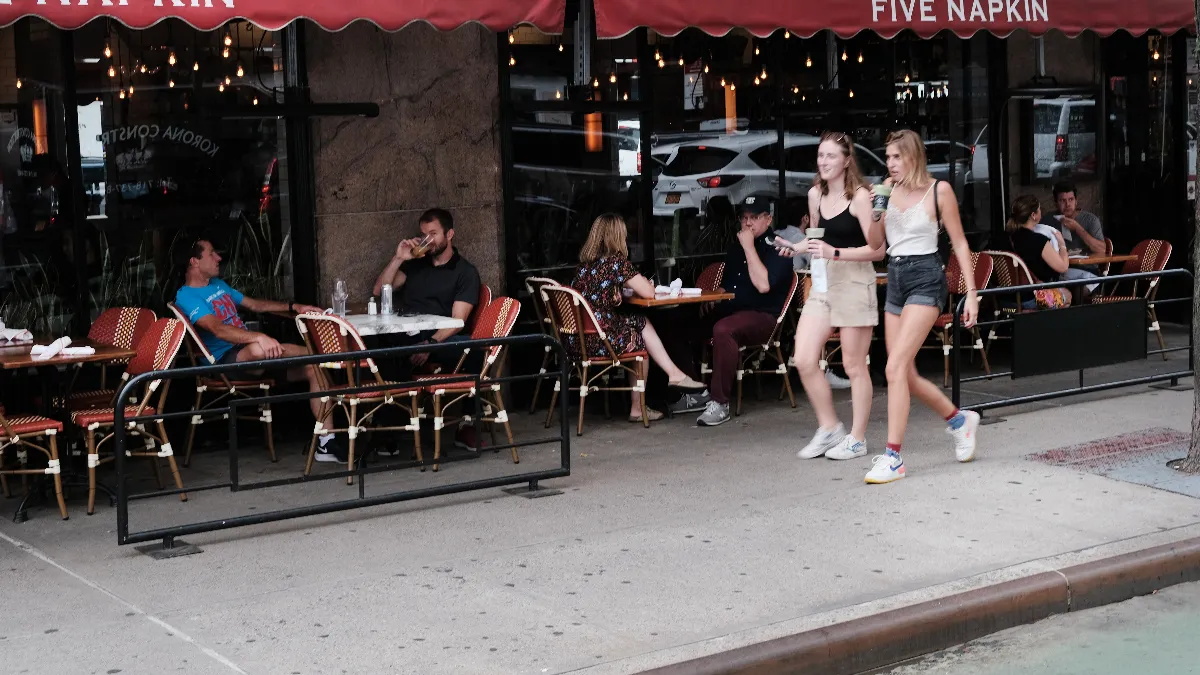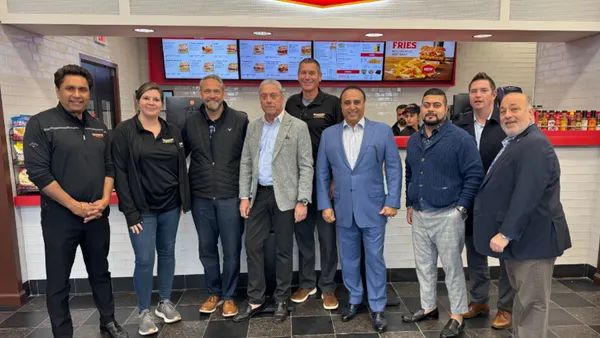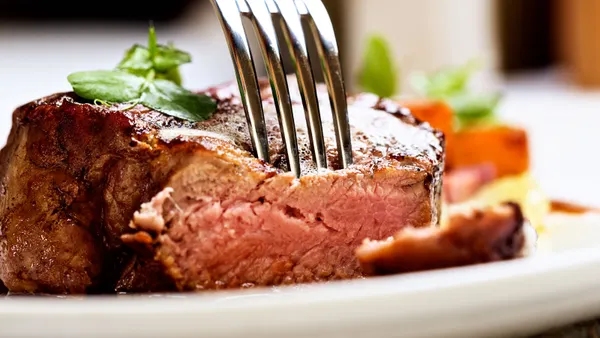Dive Brief:
- Seventy-eight percent of restaurant operators report a decline in customer demand for indoor dining in recent weeks due to the rise of delta variant coronavirus cases, according to a survey by the National Restaurant Association Research Group of 4,000 operators. The survey was conducted between Sept. 7 and Sept. 15, 2021.
- Sixty-three percent of operators said in August — historically one of the busiest months of the year for restaurants — volume was lower than in August 2019, the survey revealed.
- The findings of this report were included in a letter the organization sent to Congressional leaders on Wednesday. In the letter, the NRA warned of the harm provisions within the Build Back Better Act, including some tax changes, could have on the restaurant industry. The NRA also urged Congress to replenish the Restaurant Revitalization Fund.
Dive Insight:
Dine-in sales for the restaurant industry are negative, despite two-year average check growth during the week ending Sept. 19, 2021 that is the highest Black Box Intelligence has ever recorded. This slump signals the pandemic's impact on the restaurant industry is far from over.
Forty-four percent of operators said they still haven't returned to full indoor dining capacity, according to the NRA's survey. These findings reiterate the organizations's earlier report on shifting customer behavior, where six in 10 diners said they have changed their dining habits following a spike in U.S. coronavirus cases.
A majority of full-service and limited-service operators said their business conditions are worse than they were three months ago. Forty-four percent said they think it will take over a year before they see normal business conditions, and 19% don't expect conditions to ever return to normal, according to the NRA's September survey.
"Our nation's restaurant recovery is officially moving in reverse," Sean Kennedy, executive vice president of public affairs for the National Restaurant Association, said in a press release. "The lingering effects of the delta variant are a further drag on an industry struggling with rising costs and falling revenue."
Operators are dealing with a bump in costs across the board, with 91% paying more for food, 84% paying more for labor and 63% shelling out more for occupancy costs. At the same time, profitability has not gone up, and 85% of operators now have smaller margins than pre-pandemic.
Prices for chicken wings have skyrocketed, for example. An operator in Seattle shuttered his operations and instead sold food and drinks at music festivals at higher prices after discovering he was losing money on every box of wings his restaurant sold.
Shortages are also having a dramatic impact on operators' ability to be fully functional. Seventy-eight percent of operators report their restaurants don't have enough staff to accommodate diner demand, and many operators continue to cut hours and capacity limits. A majority of operators (95%) also said they have seen delays or shortages of food and beverage items in the last three months, and 75% have had to change their menus because of the shortages.
With the BBBA under consideration, the NRA continues to urge Congress to further support the restaurant industry and said it opposes various aspects of this bill, including capping Section 199A Small Business Tax Deduction, which would "deny small businesses earning over $400,000 or $500,000 in annual income the ability to preserve more of their working capital." The organization also opposes the repeal of the stepped-up basis, which makes death a taxable event for a family-owned business, an increase in the corporate tax rate and additional fines for the NLRA violations, which would allow fines of $50,000 to $100,000 for each violation.
"We support many of the goals of the Build Back Better Act, but the legislation is too large and too expensive a check for small businesses to take on," Kennedy said. "Restaurants still need help today and overwhelming them with costly new obligations will only prevent progress in turning the tide of recovery."










